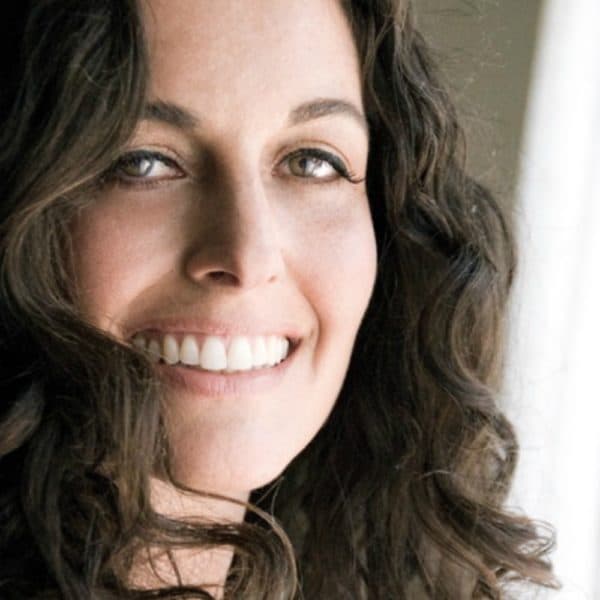Advertisement
Commentary
The Pain Of Losing A Child You've Never Known. And The Relief Of Telling Your Story

Last week, in an opinion piece for the New York Times, Meghan Markle revealed that she had a miscarriage in July. She offered the public a startlingly intimate window into her private life:
“It was a July morning that began as ordinarily as any other day,” she begins. “Make breakfast. Feed the dogs. Take vitamins. Find that missing sock. Pick up the rogue crayon that rolled under the table. Throw my hair in a ponytail before getting my son from his crib.”
Markle invites us into her life in a way we don’t expect from a member of the royal family, forcing millions of eyes onto a tragedy that is one of the last taboos, an experience still discussed in whispers, if at all.
“After changing his diaper, I felt a sharp cramp. I dropped to the floor with him in my arms, humming a lullaby to keep us both calm, the cheerful tune a stark contrast to my sense that something was not right. I knew, as I clutched my firstborn child, that I was losing my second.”
Like Markle, I lost a child in utero.
One night in my eighth month of pregnancy, I noticed my baby wasn’t moving. At the hospital, the nurse couldn’t find a heartbeat. The next day I delivered a perfectly-formed, four-pound baby girl we named Nina. My husband and I held her and wept. I kept repeating, “I’m sorry, I’m so sorry, baby.”
It was scary telling a story that society told me no one wanted to hear.
When we lost Nina, I felt the emotions one might expect: sadness, rage, desolation. But when it came to letting people know what had happened, I was overcome by shame. The loss hit me like a personal failure, as if I was letting down the people who were waiting to meet my baby. I made the necessary phone calls, sent a group email to my closest friends, but I didn’t publicize my grief. It felt too personal — and too depressing. Years earlier, I was shocked when a friend posted about her miscarriage on Facebook. How could she share something so private with hundreds of so-called friends she probably barely knew?
I did write about my loss. I was pregnant with Nina when I agreed to perform in a reading series about motherhood. After she died, an essay poured out of me, and I shared my devastation and rage with an audience of friends and strangers. I have published other pieces through the years, and eventually grew comfortable posting on social media every year on Nina’s birthday.
But at a certain point, the shame crept back in. I didn’t want to become defined by my stillbirth, still droning on about my tragedy years later. I imagined my friends rolling their eyes, thinking, oh please, don’t subject us to another reminder of your loss. Through most of my life, I’ve been known for my big smile and sunny positivity, my social media posts gushing with love for my son and look-on-the-bright-side philosophy. It was scary telling a story that society told me no one wanted to hear.
Advertisement
Grieving an unborn child is unique. Unlike losing a loved one we’ve known for years, we have no happy memories to console us. We can’t tell stories or look through photos, smiling through our tears. The pain of losing a baby who never lived outside of our bodies — loved for our visions of the child we would eventually have — is hard for others to understand. How can you grieve someone you never met?
In my case, soon after the sympathy flowers wilted, people assumed I had moved on and become a functioning human being again. Even the friends who flew to town to hold my hand and do my dishes only checked in occasionally, no longer beginning the conversation with a concerned, “How are you?” that invites an honest response. Instead, they said, “How’s it going?” I’d respond, “OK” and, hearing their relief in the air between us, tell them something cute or funny my son did that week. It was easier that way.
I didn’t want to tell them that even after months had passed, the grief still overwhelmed me. Even on good days, I sometimes feared the pavement would crack beneath me and I would be pulled down into it, an image that actually brought relief — until I pictured my son left standing there alone, scared and crying, wondering what had happened to mommy.
One recent morning, I awoke to a tweet from Chrissy Teigen, the model and cookbook author who revealed her own miscarriage on Instagram in October. The post said, “I’m not tweeting much because I’m honestly in a bit of a grief depression hole.”
I knew exactly how she felt and wished I could do more than heart her words.
It has been nine years since we lost Nina and we still grieve her. Days go by when we don’t think about her, but every year on her birthday, we write letters telling her how much we wish she was a living member of our family. We let balloons fly skyward and read our letters aloud through our tears.
In Markle’s piece, she says, “In the pain of our loss, my husband and I discovered that in a room of 100 women, 10 to 20 of them will have suffered from miscarriage. Yet despite the staggering commonality of this pain, the conversation remains taboo, riddled with (unwarranted) shame, and perpetuating a cycle of solitary mourning.”
My friend’s Facebook post way back before I lost my baby, the one I judged, said something like, “Having a miscarriage sucks.” It does suck. Losing a baby is as bad as you can imagine, holding your lifeless child in your arms, knowing she won’t be coming home with you. This kind of grief might make people uncomfortable, but who says everyone gets to be comfortable all the time?
The willingness of public figures like Markle and Teigen to expose themselves and their raw emotion so honestly is shifting the conversation around pregnancy loss by giving women permission to tell their own stories. It may even open up the potential for a new level of cultural empathy, which is something we could all use right now. This kind of openness has the power to help lift the veil of secrecy and shame from an experience that is too widespread to remain in the dark.
